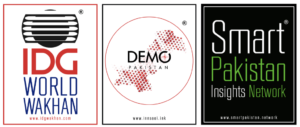In a milestone for Pakistan’s digital infrastructure, the Ministry of Finance will sign a Memorandum of Understanding (MoU) with the Bill & Melinda Gates Foundation (BMGF) next month, formalizing support for the Digital Pakistan Stack initiative. This MoU, to be signed during the World Bank meetings in Morocco, marks a strategic step towards strengthening Pakistan’s digital public infrastructure, enhancing financial inclusion, and advancing economic growth.
The upcoming agreement follows a key meeting involving Caretaker Finance Minister Dr. Shamshad Akhtar, BMGF Country Lead for Pakistan Syed Ali Mahmood, and Karandaaz CEO Waqas ul Hassan. The discussions centered on the implementation status of Raast—the country’s instant digital payment system—as well as BMGF’s support for various programs and potential collaborations in climate finance and social payments.
Finance Minister Akhtar emphasized Pakistan’s commitment to fostering inclusive growth through public-private partnerships, noting the socio-economic challenges the country faces. She acknowledged the foundation’s role in critical sectors, commending BMGF and Karandaaz for their contributions to digital and economic empowerment initiatives.
Karandaaz CEO Waqas ul Hassan introduced the Digital Pakistan Stack as a next-generation digital public infrastructure, expanding on the success of Raast, which has already facilitated transactions totaling over Rs. 4 trillion across 33 million unique IDs. The Digital Pakistan Stack aims to further modernize the nation’s payment systems and accelerate digital transformation.
Additionally, the meeting explored the design of an integrated social safety net program focusing on immunization, nutrition, women’s economic empowerment, and financial inclusion. This comprehensive approach aims to address some of Pakistan’s most pressing developmental needs.
The MoU will also establish oversight of the Digital Pakistan Stack by the National Financial Inclusion Council, chaired by Dr. Akhtar, to ensure its effective implementation. This collaboration signifies a major step forward in Pakistan’s digital evolution, with the potential to drive economic growth and improve quality of life for millions.



